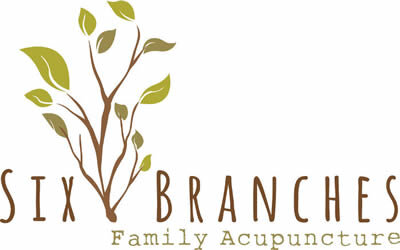Irritable Bowel Syndrome is a chronic and debilitating gastrointestinal disorder that is estimated to affect about 14% of the U.S. population. It fits in the category of 'functional' diseases, which basically means that, while there are clear and present symptoms for the patient, Western medicine has not yet figured out the cause of the distress. Common symptoms of IBS include abdominal pain or discomfort, frequent diarrhea or constipation, and a change in bowel habits, including urgency for bowel movements, a feeling of incomplete evacuation (tenesmus), and bloating or abdominal distention. People with IBS often also have a wider range of symptoms such as gastroesophageal reflux, genitourinary symptoms, chronic fatigue syndrome, fibromyalgia, headache, backache and emotional symptoms such as depression and anxiety.
This kind of disorder ('functional', a wide range of symptoms across systems, partly connected to emotions), is exactly the kind of situation where Traditional Chinese Medicine shines forth. TCM actually does make sense of what's going on in these cases - in TCM terms of course. For most cases of IBS, this is a manifestation of Liver Qi Stagnation, where the Liver is "overacting" on the Spleen. Many people will also have damp accumulation weighing down on the Spleen functions, while others may have an additional underlying Qi or Yin deficiency. All of these aspects will factor into a treatment that balances the Liver/Spleen relationship. (If you're asking yourself, Spleen whaa? Liver huh? Please see IH's page on Organ Systems in TCM.) Acupuncture and herbal medicine work together to increase circulation, soothe the Liver and promote healthy digestion and elimination by draining dampness and enlivening the Spleen.In addition to trying acupuncture and herbal medicine to treat IBS, there are many changes you can make to your diet that help many sufferers to relieve some of their symptoms. The British Dietetic Association recently published a review of the scientific literature relating to IBS in the Journal of Human Nutrition and Dietetics and have created new guidelines to help sufferers address their digestive problems through dietary changes. Their suggestions include:
Remove milk and dairy products. TCM theory agrees. Dairy products have damp and cold properties, weakening the spleen.
Avoid dietary supplementation with wheat bran. Individuals with IBS should not increase their wheat bran intake above their usual dietary intake.
A 3-month trial of dietary supplementation of ground [flax]seeds is recommended for individuals with constipation-predominant IBS, as symptom improvement may be gradual. Flax seeds also contain the precursors to Omega-3s, which can help ease inflammation. Notice that this recommendation is for the constipation-predominant type only, as the oils in flax seeds may be too damp for the weak Spleen that is often seen with the diarrhea-predominant type..
Reduce intake of fermentable carbohydrates for individuals with IBS and abdominal bloating, abdominal pain, and/or flatulence. "Fermentable carbohydrates" is a fancy way of saying reduce alcohol, sugar (including fruit sugar), and simple carbohydrates. These also happen to be damp-producing foods.
Consider probiotics, selecting 1 product at a time and monitoring the effects, as there is considered to be no harm associated with probiotics for individuals with IBS. Each probiotic trial should last a minimum of 4 weeks at the manufacturer's recommended dose.
Particularly for patients with diarrhea-predominant IBS, consider an elimination or empirical dietwhen food appears to be a trigger for IBS symptoms. If symptoms do not improve within 2 to 4 weeks, the specific foods eliminated are an unlikely cause of IBS symptoms.
These are all recommendations that make sense to the TCM mindset and most acupuncturists would give you similar advice if you seek treatment for IBS. We would also suggest sticking to warm, cooked foods for the time being to go easy on your digestive system.You can learn more about addressing both Liver Qi Stagnation and dampness right here on Integrating Health! Want to know more? Post your questions here in the comments section!



